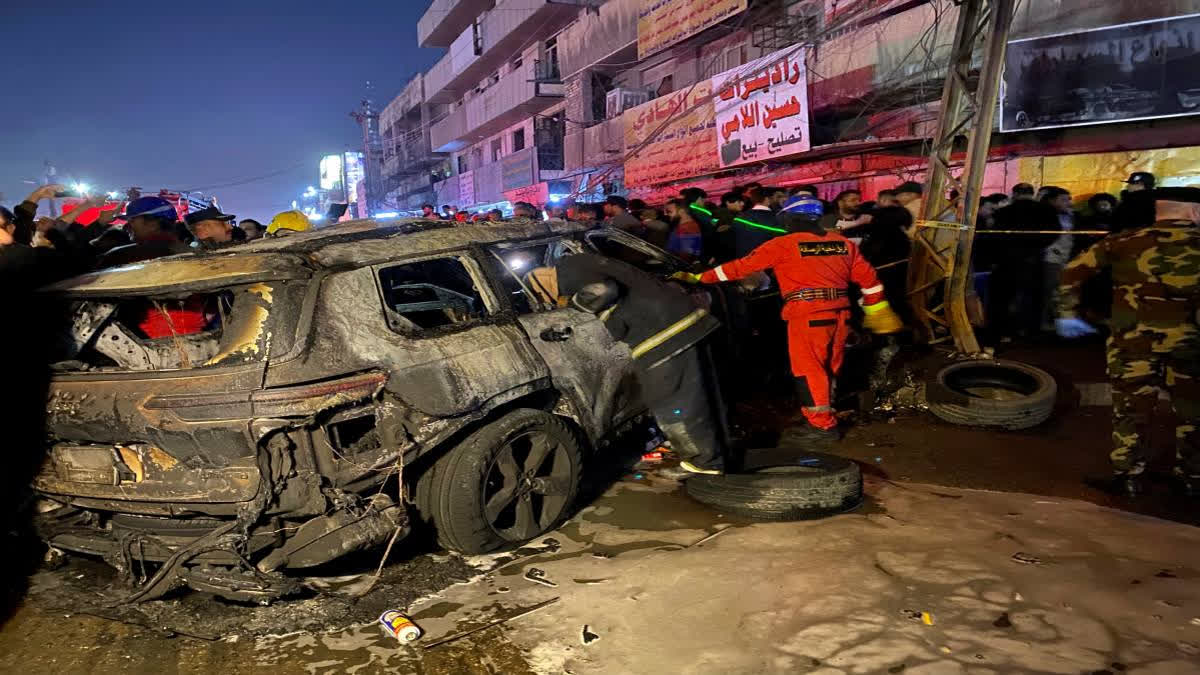Baghdad: A U.S. drone strike blew up a car in the Iraqi capital Wednesday night, killing a high-ranking commander of the powerful Kataib Hezbollah militia who is responsible for "directly planning and participating in attacks" on American troops in the region, the U.S. military said Wednesday.
The precision blast hit a main thoroughfare in the Mashtal neighborhood in eastern Baghdad, attracting a crowd as emergency teams picked through the wreckage. It came amid roiling tensions in the region, and will likely further anger Iraqi government leaders, who U.S. officials said were not notified in advance of the strike.
Security forces closed off the heavily guarded Green Zone, where a number of diplomatic compounds are located, and there were concerns about social media postings urging protesters to storm the U.S. embassy.
There were conflicting reports on the number of those killed, with U.S. officials saying the initial assessment was one, and saying there were no civilians hurt or killed. But two officials with Iran-backed militias in Iraq said that three died, including Wissam Muhammad Sabir Al-Saadi, known as Abu Baqir Al-Saadi, the commander in charge of Kataib Hezbollah's operations in Syria. Kataeb Hezbollah later announced his death "following the bombing of the American occupation forces" in a statement.
Those officials spoke on condition of anonymity because they weren't authorized to speak to journalists. In a statement, U.S. Central Command said "there are no indications of collateral damage or civilian casualties at this time." It added that the U.S. "will not hesitate to hold responsible all those who threaten our forces' safety."
The strike — which came at 9:30 p.m. local time — is certain to inflame already seething relations between Washington and Baghdad. It comes just days after the U.S. military launched an air assault on dozens of sites in Iraq and Syria used by Iranian-backed militias and the Iranian Revolutionary Guard in retaliation for a drone strike that killed three U.S. troops and injured more than 40 others at a base in Jordan in late January.
The U.S. has blamed the Islamic Resistance in Iraq, a broad coalition of Iran-backed militias, for the attack in Jordan. President Joe Biden and other top leaders have repeatedly warned that the U.S. would continue to retaliate against those responsible for the Jordan attack. And officials have suggested that key militia leaders would be likely targets.
